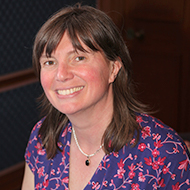
The webinar will be hosted by BBraun Vetcare, and will be an online event.
BBraun Vetcare is hosting a webinar named Confident Chemotherapy, which will cover the latest thinking on the use of chemotherapy in practice.
Taking place on Thursday 15 July at 5pm, this free-to-attend event will also consider how the adoption of Closed System Transfer Devices can help to improve safety, and break down barriers to treatment across all practices.
The webinar will feature world-class speakers and referral centres that specialise in small animal oncology, including Professor Melissa McDermid MD, division head in Occupational and Environmental Medicine at the University of Maryland, and Prof. Clare Knottenbelt, the founder of Hawk and Dove, a specialist referral service.
Also speaking is Sam Fontaine MSc, who is a lecturer and director of the MSc Advanced Practice in Veterinary Nursing and module leader within the BVMS programme at The Glasgow School of Veterinary Medicine.
A video will also be played from the oncology centre at The Queen's Veterinary School at Cambridge University.
Prof. Knottenbelt commented on the expanded use of chemotherapy in veterinary clinic, saying: “Pets with cancer need to be able to access chemotherapy treatments locally. The advent of new closed administration systems mean that practices can now safely administer chemotherapeutics in house without the need for large investment, but still protecting the health of their staff."
Open to both veterinary surgeons and nurses, the event is live, and participants will have the opportunity to submit questions to the speakers. Online delegates will receive a certificate for one hour of CPD.
Registration details, along with the full programme for the Confident Chemotherapy webinar, can be found at aesuclap-academia and the CPD certificate will be send to the registered email address after the event.



 The Veterinary Medicines Directorate (VMD) is inviting applications from veterinary students to attend a one-week extramural studies (EMS) placement in July 2026.
The Veterinary Medicines Directorate (VMD) is inviting applications from veterinary students to attend a one-week extramural studies (EMS) placement in July 2026.